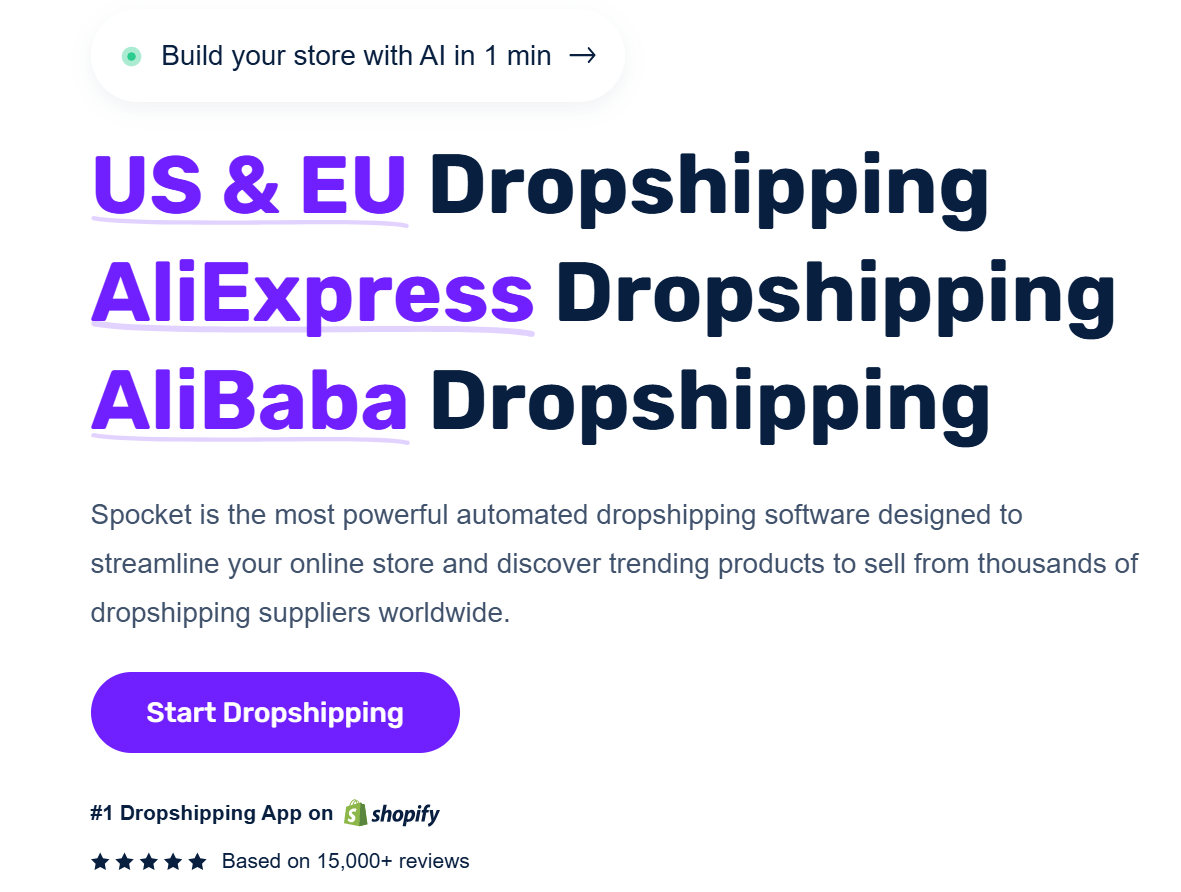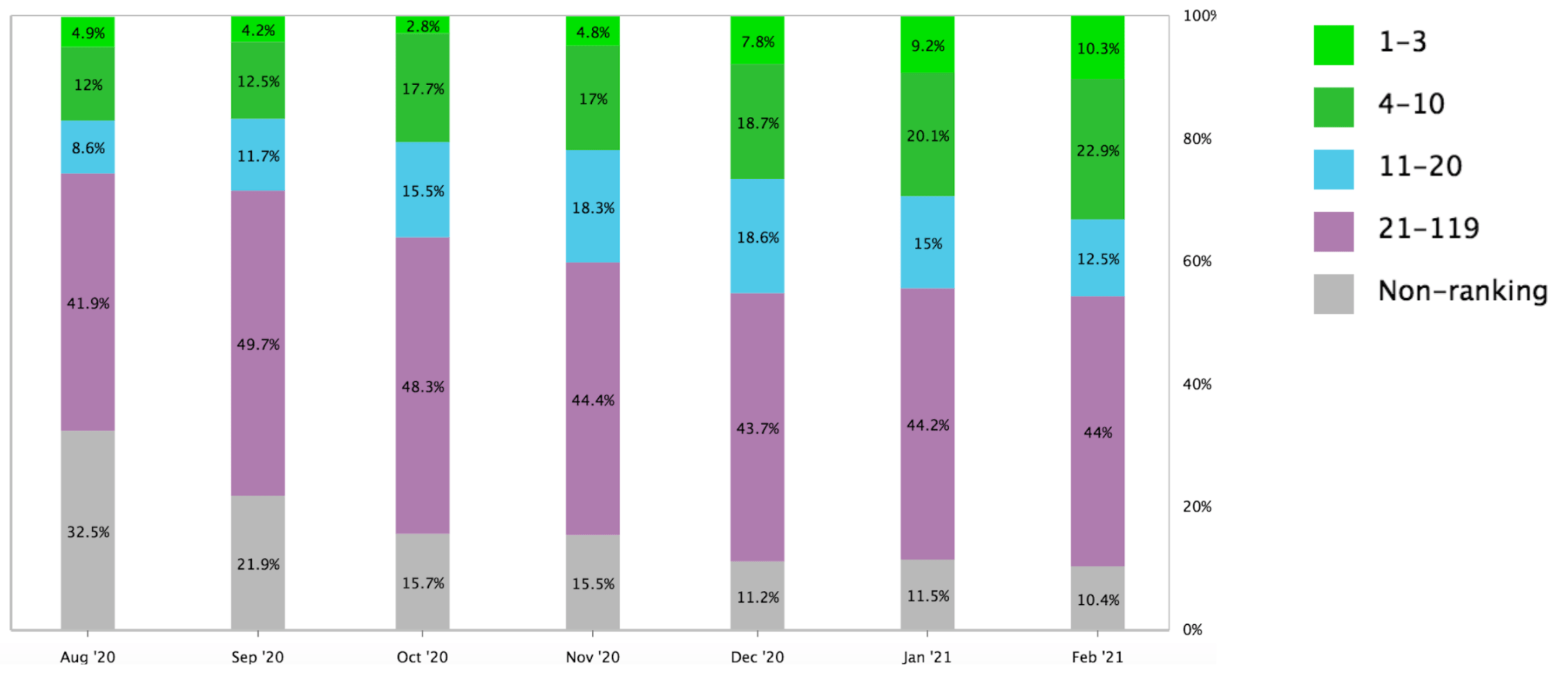spocket
Intro
151% increase in organic search traffic
Goals
Spocket is a dropshipping marketplace that empowers over 60,000+ entrepreneurs across five continents to launch and scale online stores without upfront inventory costs.
In 2020, Spocket partnered with Method and Metric to increase registrations, traffic, and tool downloads while diversifying landing pages. Our SEO audit uncovered major UX and technical SEO issues that limited visibility and conversions.

In just 6 short months…
Website Traffic
407%
organic traffic
151%
151% increase in organic search traffic (non-branded)
keyword ranking
2x
2x more keywords ranking in Google’s top 3
pages per session
20%
20% increase in pages per session from organic traffic

Organic Clicks
Website clicks skyrocketed year-over-year, with 2021 delivering several times more traffic than 2020. The sharp increase highlights how our SEO strategy not only improved visibility but also sustained higher engagement across three consecutive months.
Google Keyword Rankings
In just six months, Spocket doubled the share of keywords ranking in Google’s top 3 and steadily increased top 10 positions. Non-ranking keywords fell from 32.5% to only 10.4%, proving the impact of a focused keyword strategy and technical SEO fixes.

Challenges
Before working with Method + Metric, Spocket faced:
-
Poor site architecture that confused users and search crawlers.
-
Large number of orphan pages listed in the XML sitemap.
-
No consistent internal linking strategy.
-
Slow site speed, inconsistent meta titles, and missing schema markup.
-
Over-reliance on blog content for traffic, with limited ranking main pages.
-
Evidence of negative SEO attacks with spammy backlinks.
Solutions
Our team implemented a full-scale SEO strategy focusing on technical fixes, keyword targeting, and UX optimization:
-
Site Architecture & UX: Streamlined navigation, improved crawlability, and eliminated orphan pages.
-
Keyword Research & Mapping: Identified long-tail opportunities and optimized meta titles, descriptions, and headers for high-volume search terms.
-
Content Strategy: Diversified content to move beyond blogs and ensure main pages ranked competitively.
-
Internal Linking: Built a strategy to increase authority flow across core and blog pages.
-
Technical SEO: Fixed redirect chains, optimized page speed, updated sitemap, and implemented schema markup.
-
Backlink Cleanup: Identified and disavowed toxic links to counteract negative SEO.
